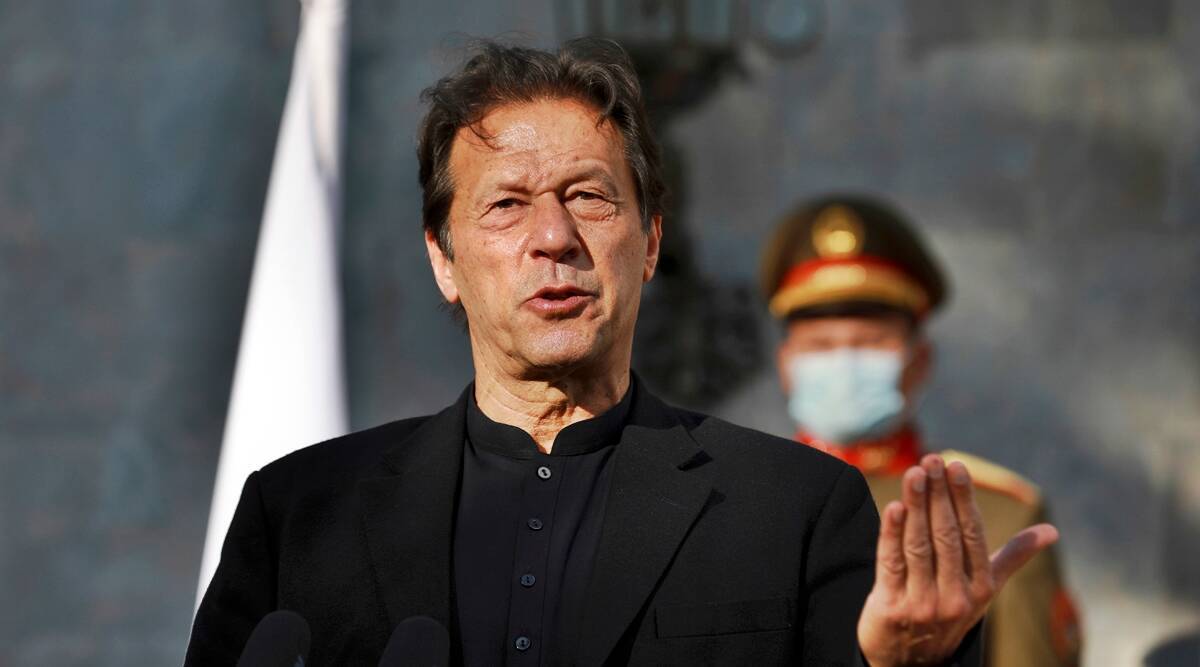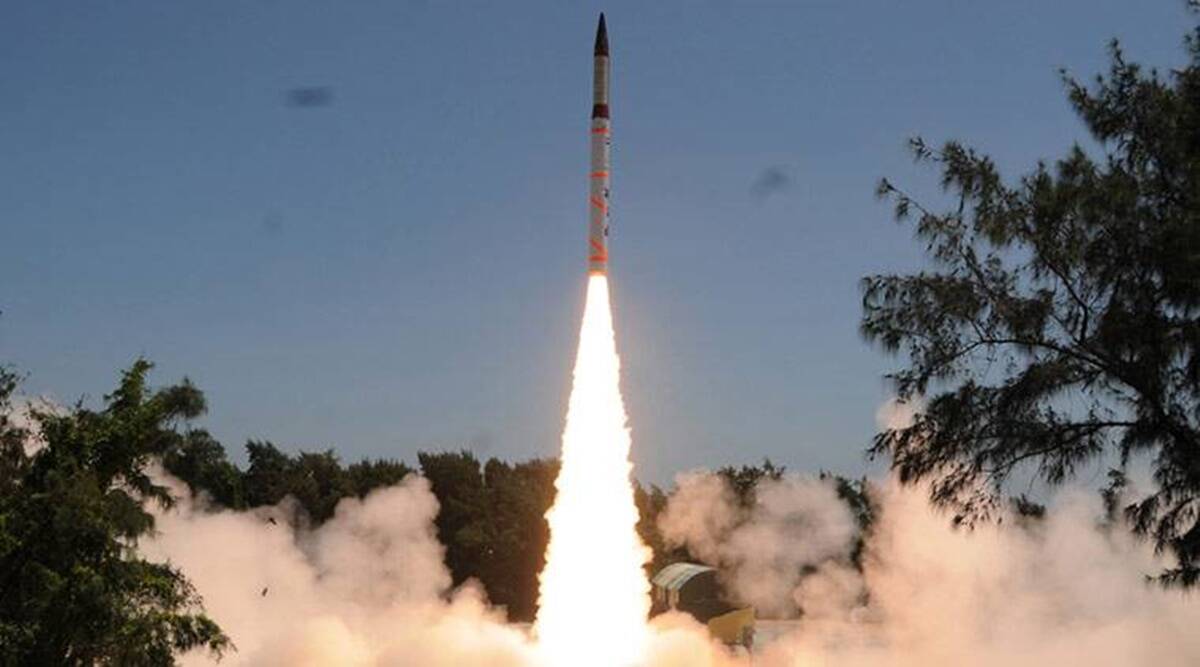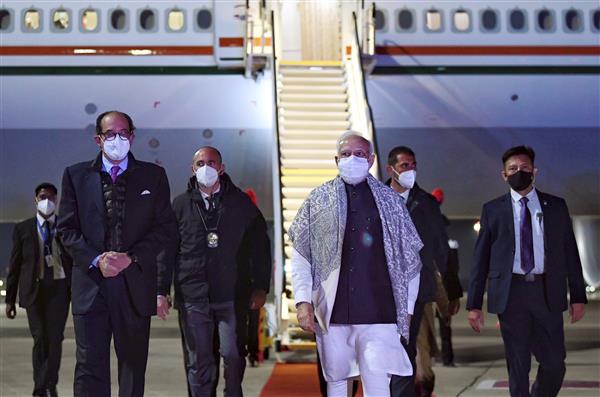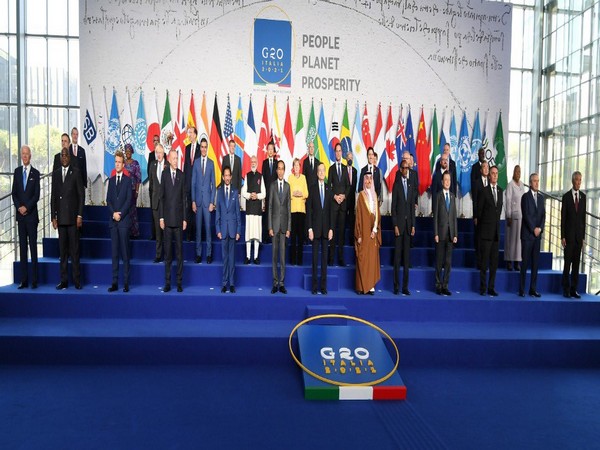
04/10/2022
Islamabad, Apr. 10: Pakistan’s Prime Minister Imran Khan lost power late on Saturday night, voted out by parliament in a test of strength that the Speaker had stalled all day.
The motion was taken up after Pakistan’s Supreme Court prepared to step in to enforce compliance of its April 7 order directing the holding of the vote of no-confidence, and prison vans were stationed outside the National Assembly, apparently to take away officials guilty of contempt.
Speaker Asad Qaiser and Deputy Speaker Qasim Suri, both from Imran’s Pakistan Tehreek-i-Insaf party, resigned and Ayaz Sadiq of the main opposition PML-N took charge of the proceedings.
Voting on the resolution began at 11.58 pm, but the House was adjourned for four minutes to comply with rules that do not allow a session to continue past midnight, Dawn reported. The new session began at 12.02 am (past 12.30 am in India), and the process was ongoing at press time.
Earlier, the National Assembly was adjourned four times during the day. Amid the impasse, Army Chief Gen Qamar Javed Bajwa met Imran, Reuters reported, quoting two unnamed sources.
A little before midnight, Dawn reported that Islamabad High Court was preparing to take up a petition asking the court to restrain the Prime Minister from de-notifying General Bajwa as the Army Chief. Imran denied plans to sack Bajwa, PTI reported.
Meanwhile, both the Pakistan Supreme Court and Islamabad High Court were expected to become active after midnight if the top court’s orders to complete the vote was not complied with.
On April 7, a Supreme Court bench led by Chief Justice of Pakistan Umar Ata Bandial had set aside a decision by the deputy speaker to dismiss a no-trust resolution against the government, as well as the subsequent dissolution of the National Assembly by the President on the advice of the Prime Minister.
The court had restored the House and directed it to reconvene by 10.30 am on Saturday to conclude the vote of no-confidence.
Late on Saturday evening, Justice Bandial instructed officials to open the court at midnight (12.30 am IST), sources said. The doors of Islamabad High Court too were being opened on the orders of the High Court Chief Justice Athar Minallah, the sources added.
Pakistani media reported that prisoner vans had drawn up outside the Assembly, and there was speculation that the Speaker and Deputy Speaker could be arrested if the vote was not held by midnight as ordered by the Supreme Court.
Security was tightened at airports, and an alert was issued saying no senior state functionary or government official would leave the country without a No Objection Certificate (NOC).
The joint opposition, meanwhile, lodged an official complaint with the Speaker, urging him not to further delay the vote on the no-confidence motion. They said all authorities, including him, were guilty of “gross contempt and liable to punishment in accordance with law”.
Through the day, treasury members made lengthy speeches as the opposition clamoured for the vote to be taken up.
The government was widely expected to lose the vote. The opposition needs the support of 172 of the 342 lawmakers to oust Imran, and a tally posted by Dawn, the country’s leading news organisation, as Parliament assembled on Saturday morning, showed 176 MNAs against him.
The largest block in the united opposition is from former Prime Minister Nawaz Sharif’s PML-N (84 lawmakers), followed by Bilawal Bhutto-Zardari’s PPP (56 lawmakers).
Foreign Minister Shah Mehmood Qureshi made an angry speech in the House, accusing the United States of humiliating Pakistan, saying the American National Security Adviser had tried to stop Imran from travelling to Russia to meet President Vladimir Putin in February.
Imran met Putin in a pre-scheduled summit just before Russian troops invaded Ukraine.
“The National Security Adviser of the United States of America calls the National Security Adviser of Pakistan, and says ‘do not go’. Categorically. Mujhe bataaiye, kaun bataaye, kahaan hota hai ki ek sovereign state ko uske bilateral visit se iss tarah roka jaaye…kahaan hota hai? Aur kaun si khud-mukhtaar qaum, aur khuddar qaum, ye qabool karti hai?” Qureshi said.
“Pakistan is standing at the crossroads of history. The nation has to decide whether we will live with our heads bowed or with our heads held high,” he said.
Imran opposed the US-led intervention in Afghanistan, and has developed relations with Russia since becoming Prime Minister. He has accused the United States of supporting a plot to oust him, without offering evidence of his claim, which Washington has dismissed.
In an address to the nation late on Friday evening, Imran said he would not accept “an imported government”. The move to oust him was part of a foreign conspiracy, he said, and announced he was “ready for a struggle”.
Speaking shortly after the session began in the morning, PML-N leader Shehbaz Sharif, who is expected to become Prime Minister if Imran is ousted, urged Speaker Asad Qaiser to ensure the vote was carried out as a matter of priority.
The Speaker said he would implement the order of the Supreme Court “in true letter and spirit”.
Bilawal mocked Imran for not being present in the House, saying he was the “first captain who is running from the pitch with wickets because he fears that he will lose the match”.
“Imran Khan is not present in the Parliament because he cannot defend himself. Conspiracies against the constitution will not succeed,” Bilawal said, adding that before leaving office, Imran should “show some sportsman spirit”.
In the evening, a close aide of the Prime Minister warned that “those who bought MPs” would be responsible if martial law was imposed in the country.
The remarks by Minister for Information and Broadcasting Fawad Chaudhry came after Bilawal alleged that Imran was seeking military intervention in the country’s political affairs by delaying the vote and creating a constitutional crisis.
In an informal chat with journalists inside Parliament House, Chaudhry said “those who bought MPs will be responsible if martial law is imposed”, Geo News reported.
Imran, who became Prime Minister with the all-powerful Army’s support, is now seen to have fallen out with the military. No Pakistani Prime Minister has completed a full five-year term in office.
Ruling party members had suggested on Friday that they would try to delay the vote for as long as possible. At a meeting with a group of his favourite journalists late on Saturday evening, Imran repeated his promise of playing “till the last ball”. He claimed he was not interfering in the process of implementation of the orders of the Supreme Court to hold a no-confidence vote.-Agencies






